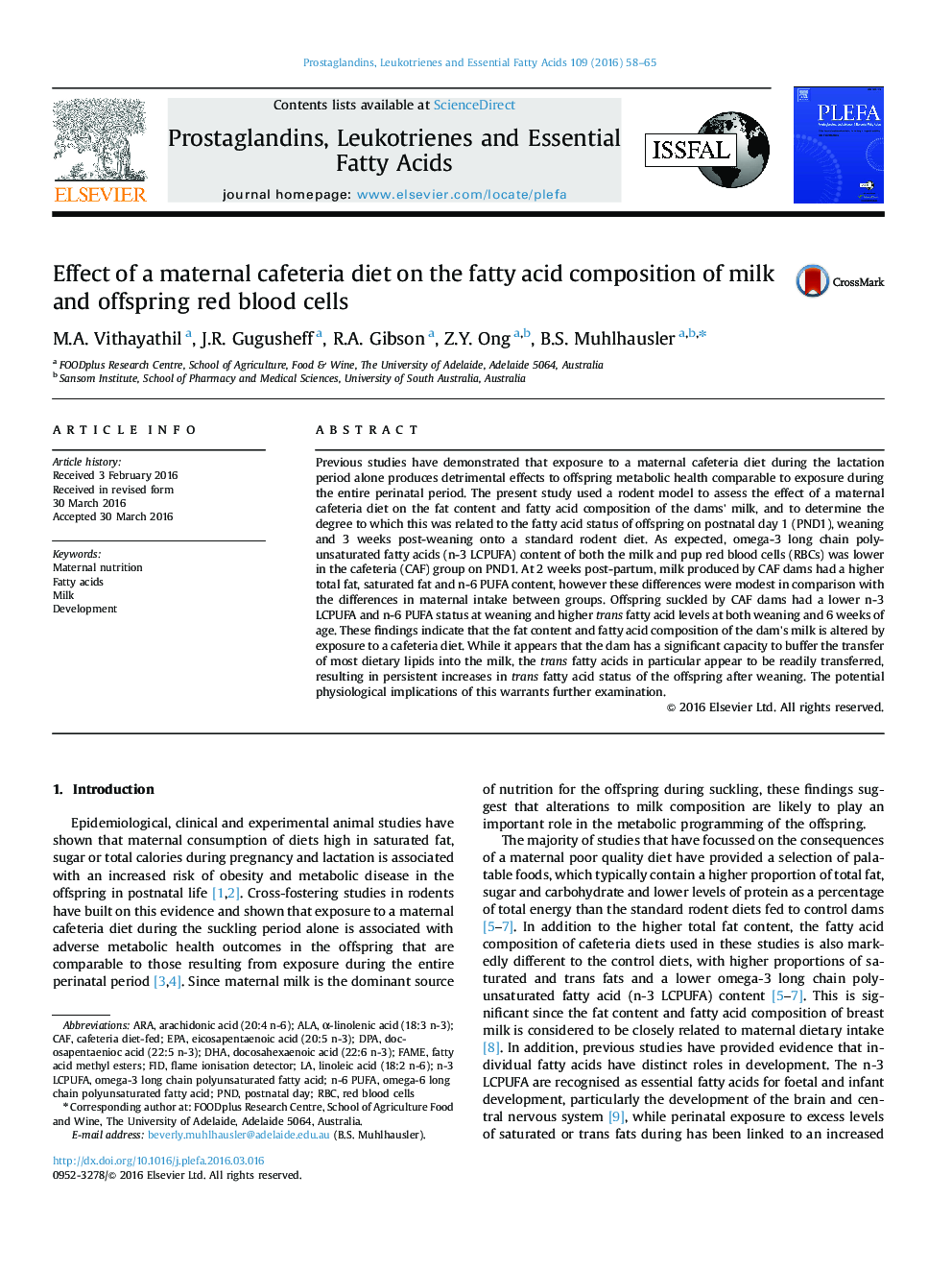| Article ID | Journal | Published Year | Pages | File Type |
|---|---|---|---|---|
| 5888417 | Prostaglandins, Leukotrienes and Essential Fatty Acids (PLEFA) | 2016 | 8 Pages |
Previous studies have demonstrated that exposure to a maternal cafeteria diet during the lactation period alone produces detrimental effects to offspring metabolic health comparable to exposure during the entire perinatal period. The present study used a rodent model to assess the effect of a maternal cafeteria diet on the fat content and fatty acid composition of the dams' milk, and to determine the degree to which this was related to the fatty acid status of offspring on postnatal day 1 (PND1), weaning and 3 weeks post-weaning onto a standard rodent diet. As expected, omega-3 long chain polyunsaturated fatty acids (n-3 LCPUFA) content of both the milk and pup red blood cells (RBCs) was lower in the cafeteria (CAF) group on PND1. At 2 weeks post-partum, milk produced by CAF dams had a higher total fat, saturated fat and n-6 PUFA content, however these differences were modest in comparison with the differences in maternal intake between groups. Offspring suckled by CAF dams had a lower n-3 LCPUFA and n-6 PUFA status at weaning and higher trans fatty acid levels at both weaning and 6 weeks of age. These findings indicate that the fat content and fatty acid composition of the dam's milk is altered by exposure to a cafeteria diet. While it appears that the dam has a significant capacity to buffer the transfer of most dietary lipids into the milk, the trans fatty acids in particular appear to be readily transferred, resulting in persistent increases in trans fatty acid status of the offspring after weaning. The potential physiological implications of this warrants further examination.
